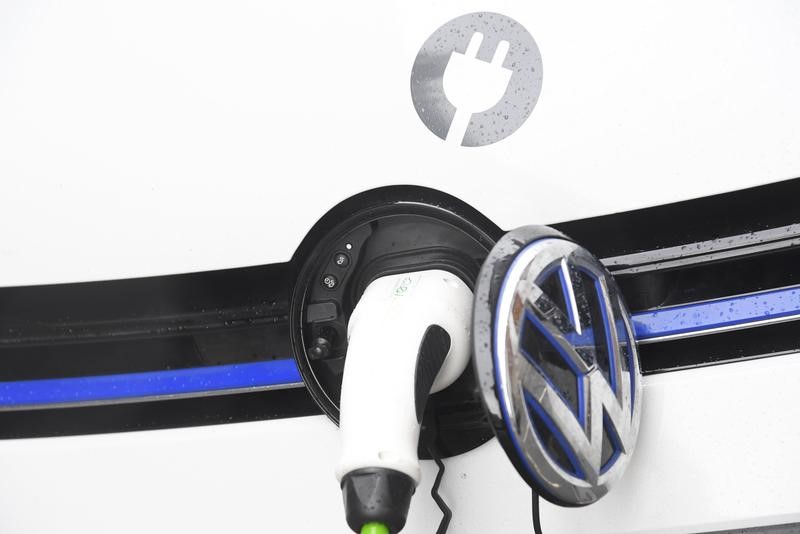This post was originally published on this site
https://i-invdn-com.akamaized.net/news/LYNXMPECAE1HP_M.jpg
Investing.com — Volkswagen (DE:VOWG_p) took another big step to narrowing the gaping valuation discount between it and Tesla (NASDAQ:TSLA) on Tuesday, after raising its target for electric vehicle sales and for profitability in the current year.
Shares in the world’s second-largest automotive group soared nearly 6% to a new six-year high after the group said it wants to sell 1 million EVs this year. The new sales target for this year, if met, would put the German company comfortably ahead of Tesla by sales: Elon Musk’s company expects to grow sales by more than 50%, implying a baseline sales volume of 750,000. VW was the top performer in a DAX index that rose 0.7% on Tuesday.
VW’s preferred shares are now at their highest level since the onset of the Dieselgate crisis in 2015, which wiped tens of billions of euros off the company and which, ultimately, was the catalyst for an electrification drive that is now rapidly gaining momentum. VW plans to invest 46 billion euros ($55 billion) in its electric and hybrid models over the next five years, with a view to having 70% of its European sales electric by 2030 – double its previous target.
VW made its new forecasts as it presented full-year results for 2020 which were largely in line with expectations, propped up by its Porsche unit and by its financial arm. The company expects a vigorous rebound this year. On Tuesday, VW announced plans to cut fixed costs by another 2 billion euros through 2023, allowing it to raise operating profit margins to between 7%-8%. That’s up from a previous target of 5%-6.5%.
The new targets came a day after VW showcased its ambitions in battery supply. At a two-hour presentation on Monday intended to echo Tesla’s ‘Battery Day’ event, the company said it intends to have 80% of its models operating on a ‘unified cell design’ by 2023 that – it hopes – will help halve unit costs.
In Europe alone, it also plans to have six battery cell production plants operating by 2030, either on its own or together with partners, and a network of 18,000 public fast-charging points by 2025. For the latter, it’s partnering both with legacy fuel retailers such as BP (NYSE:BP) and electricity utilities such as Spain’s Iberdrola (OTC:IBDRY) and Italy’s Enel (MI:ENEI). It’s also aiming for a network of a further network of 17,000 fast-charging points in China.
For now, the company is relying on the Chinese and Korean battery suppliers that have dominated the infancy of the EV market. However, VW is also an investor in U.S.-based Quantumscape (NYSE:QS), whose work on next-generation, solid-state batteries has garnered increasing attention in recent months.
Quantumscape aims to produce a solid-state battery with an 80% range advantage over existing lithium-ion batteries – as well as a reduced combustion risk.

